Help us fight diabetes in Fiji
1
Donors
$100
Raised so far
$15,000
Fund Raising Goal
Diabetes Fiji was previously called the National Diabetes Foundation of Fiji which was established in 1981 and became a member of International Diabetes Federation (IDF) in 1983. Diabetes Fiji Incorporated was registered as a Charitable Trust in July 2012.
Article: Fijivillage – Fiji has highest death rate from diabetes in the world >>
Diabetes Fiji mainly focuses on:
● Encouraging policy makers at the highest level to help create conducive environments for controlling diabetes,
● Empowering people with diabetes or at risk of diabetes with knowledge and other resources to manage/control their conditions,
● Creating awareness amongst caregivers, relatives, friends, and community to provide the needed support for people with diabetes,
● Strengthening health care systems to provide appropriate, affordable and sustainable services to people with diabetes,
● Educating communities on risk factors,
● Advocating for healthier lifestyles to reduce the prevalence for diabetes,
● Acting as an advocate for the general diabetes community. The Society is looking to raise $15,000 so children are taught a range of skills so that they become independent and able to travel confidently by themselves.
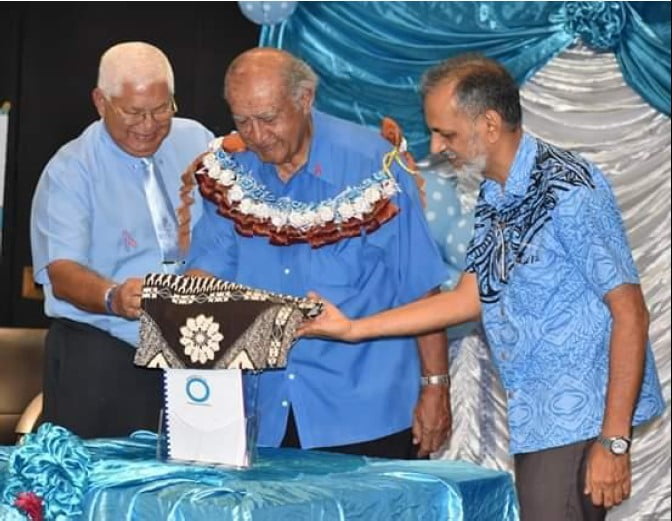
Launching of the Diabetes Fiji Strategic Plan 2020-2030 by the Honourable Speaker of the House, Ratu Epeli Nailatikau (Middle), Assistant Minister for Health and Medical Services, Hon Alexander O’Conor (left), and Mr Taabish Akbar (right) Chairman of Diabetes Fiji Inc.
CAPACITY BUILDING OF HEALTH CARE SERVICES
Diabetes Fiji was fortunate to be part of Eastern division medical outreach and conducted our footcare audit for the division. A total of 31 health facilities in the Lau, Lomaiviti, Rotuma and Kadavu were audited. The Monitoring and Evaluation officer also conducted inservice training on reporting, monitoring of the project and evaluating success for respective health facilities. Diabetes Fiji also distributed medical supplies and equipment to remote facilities to better their service to Fijians in rural areas.
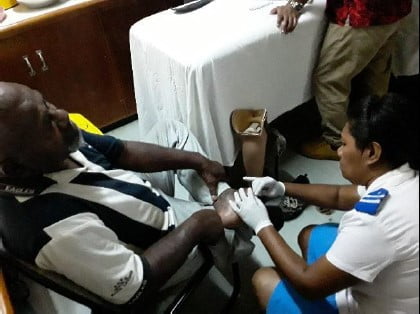
Staff Nurse Keralene Brown, Bureta Health Centre, Levuka on her two weeks attachment at the Diabetes Hub, Suva.
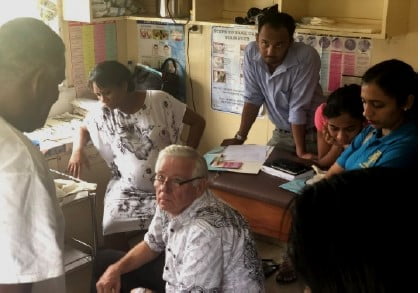
Dr Dean Clerk (USA Podiatrist) facilitating the Doctors Training at the National Diabetes Center.
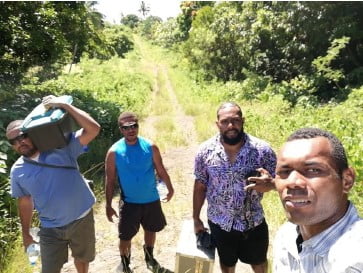
Lomaiviti outreach team walking through the bushes to get at village in Soso village in Gau.
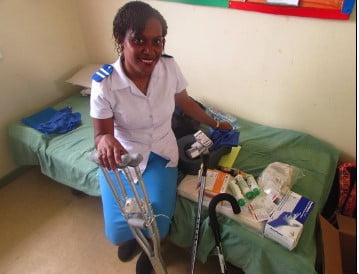
Diabetes Foot care nurse for Koro H/C with her donated supplies from Equal Med.
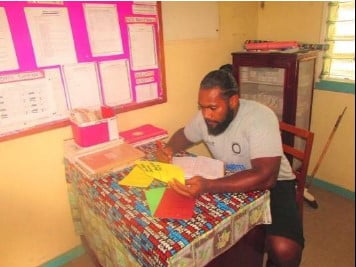
Diabetes Fiji Monitoring and Evaluation officer conducting audit in Wakaya H/C
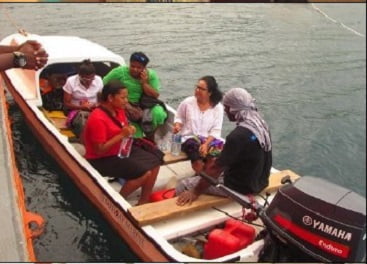
Health team leaving for SawaiekeVil, Gau.
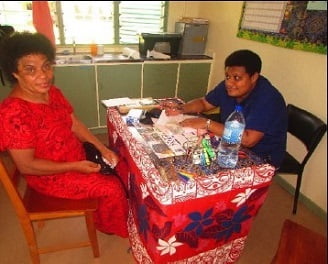
Dr Fane Lord (surgeon) reviewing foot ulcer cases at Matuku HC.
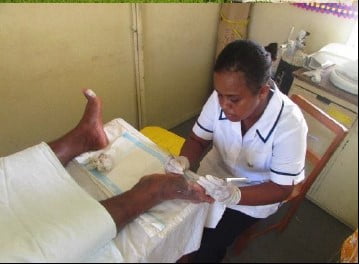
S/n Ana is the nurse in Namuka I Lau N/S. Shes also a foot care trained nurse. She is now attending to her diabetic foot care patient.
Evaluation Report 2019: Primary Level Diabetes Care Capacity Building Project
Diabetes Fiji Inc in partnership with Ministry of health and Medical Services rolled out the Primary Level Diabetes Care Capacity Building Project in 2013, with a view to Strengthening primary level Diabetes care and promoting diabetes awareness, through the support of World Diabetes Foundation.
The choice of this Goal reflects a desire to optimise the clinical management of diabetics and to decrease the morbidity related to Diabetic sepsis and amputations. Based on NCD Steps Survey in 2002 and other anecdotal studies, Diabetes remains a major burden for the Ministry and the prevalence currently stands at 16.2%. The prevalence has increased 4-fold in less than 2 decades, from 4% in 1985 to 16% in 2002. There is also lack of awareness among people of their diabetic status and only 12% who were part of 2002 NCD Step survey were controlled with medication. Ministry of Health of Health’s Annual report also states that the admission to hospitals for Diabetes and its complications doubled over the past years.
The economic burden from the disease is also demonstrated by staggering 20% of offshore expenditure by Fiji Spent on Diabetes related complications. Further, according to the World Health Report (2003) and about 6% of the health budget is spent on Diabetes. Diabetes accounts for about 5% of admissions to surgical units and in many cases patients undergo 5-7 surgical intervention before amputation. The amputation rate from Diabetes has been gradually increasing from 20 to 36 per 100 admissions over the past 5years. There were total of 1445 admissions for Diabetes and its complications in 2009 of which 32% had ulcers, 4% had renal complications and 3% with eye complications such as cataract, background and proliferative retinopathy.
Given the above status of a diabetic related complication which has led to a major burden for the Ministry of Health in Fiji, a systematic and comprehensive approach is required. Considering the broad nature of Diabetes related issues, the project focussed mainly on clinical management and prevention of diabetic footcare in Fiji. The report highlighted the evaluation done on the impact of the foot care project as it closes out with data gathered and success stories.
Diabetes Fiji Footcare Project
The footcare project has trained more than 200 nurses around Fiji. It has also saved 60% of foot ulcers cases from amputation. The biggest problem which not only faced at the clinic but around Fiji is patient presenting very late with their foot problems. Most resort to herbal treatment at very early stages, deteriorating it more and present to hospital when the condition has really worsen. It is very late for foot care nurses to intervene as infection has penetrated severely.
S/N Tavaita Dau a clinic nurse at Naqali Health Centre is behind this achievement. Trained in 2017 here sentiments about the training as quoted from an interview with Fiji Times, 2nd August, 2017. “We have both patients with diabetes and hypertension. We have more than 150 diabetes patients in Naqali” She said. Back at the health centre, dressing for diabetic foot, we applied saline, washed and send them home, but here we debride some of the thick skin in the wound and if it’s clean we apply some other creams”. She said she also learnt how to dress the diabetic wounds with honey and Betadine solution.
Sharing where her passion for foot care draws from was how patients shed tears when they wounds are healed knowing that they have been saved from amputations that could have changed their life forever. Most diabetics in the area are farmers; her work has built a rapport relationship between her and her patients. She also shared that healing not only comes from dressing done or the medication used but using other approaches she learnt from the training which is stress management, spiritual life with diet and exercise. In most cases wound healing can be delayed if these areas are been neglected. Therefore S/N Tavaita spend extra minutes to sit with patient and provide counselling.
Below are some of the pictures of success stories from S/N Tavaita Dau’s clinic.
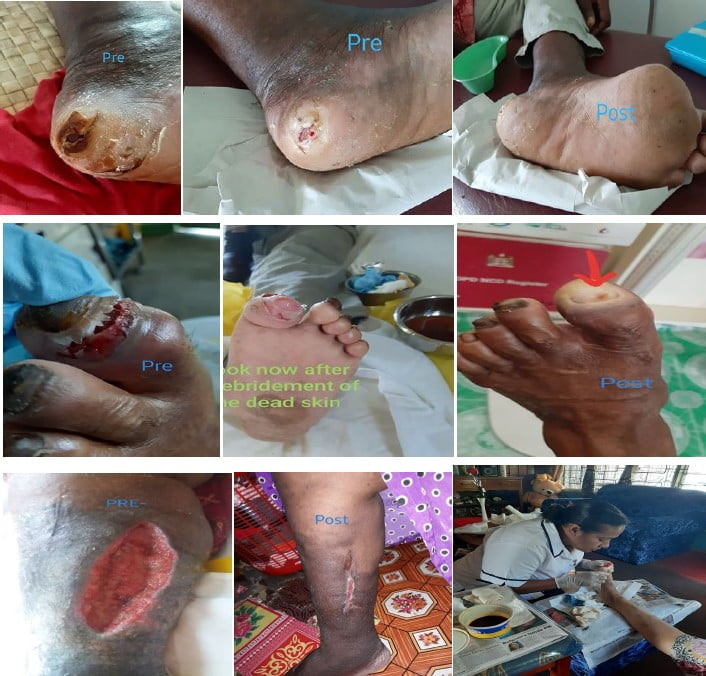
Diabetes Fiji Inc Footcare Project has produced the following outcomes:-
● Developed a 2 weeks training manual for Primary Care Nurses
● Trained 263 Nurses and 180 Physicians
● Trained 519 nursing students and 467 medical students
● Incorporated foot care in the NCD reporting system
● Established 15 dedicated foot clinic from 3 prior to the project and 48 Special Outpatient Department Clinic with foot care clinics and 85 nursing centres and peripheral health centres with foot care programs
● For the first time the surgical unit have a pre-operative protocol, intra-operative protocol and
post-operative protocol
● Improved communication between surgical and primary care physicians
● Facilitated Annual National Juvenile Health Camps
● Established 30 Diabetes Community Peer Support Groups around Fiji.
● Conducted 4,068 outreaches, with 40,282 attendees and 39,679 Fijians screened
● 1 Peer group symposium, 2 Foot care symposium, 2 NCD Diabetes congress and 1 Media symposium.
The project produced milestone achievements including:-
1. A 40% reduction in amputation rate from 2015 to 2017
2. Increased first time visit for foot assessment and education from 7.42% in 2014 to 60.0% in 2018
3. Improved blood glucose level among peer support group members by 41% (HbA1c)
4. Drop in 48% of defaulters among young diabetics that had attended our Juvenile Health camps.
DIABETES FIJI HUB HAS EXTENDED IT’S CAPACITY BUILDING OF HEALTH CARE SERVICES IN THE PACIFIC REGION
Diabetes Fiji has extended its capacity building of health care services to other Pacific Countries as Diabetes is a major crisis in the region due to the highest obesity prevalence. The Fiji organisation has trained more than 16 nurses from nine different countries in the region including Tokelau, Cook Islands, Tuvalu, Kiribati, Tonga, Papua New Guinea, Niue, Marshall Islands, and Nauru.
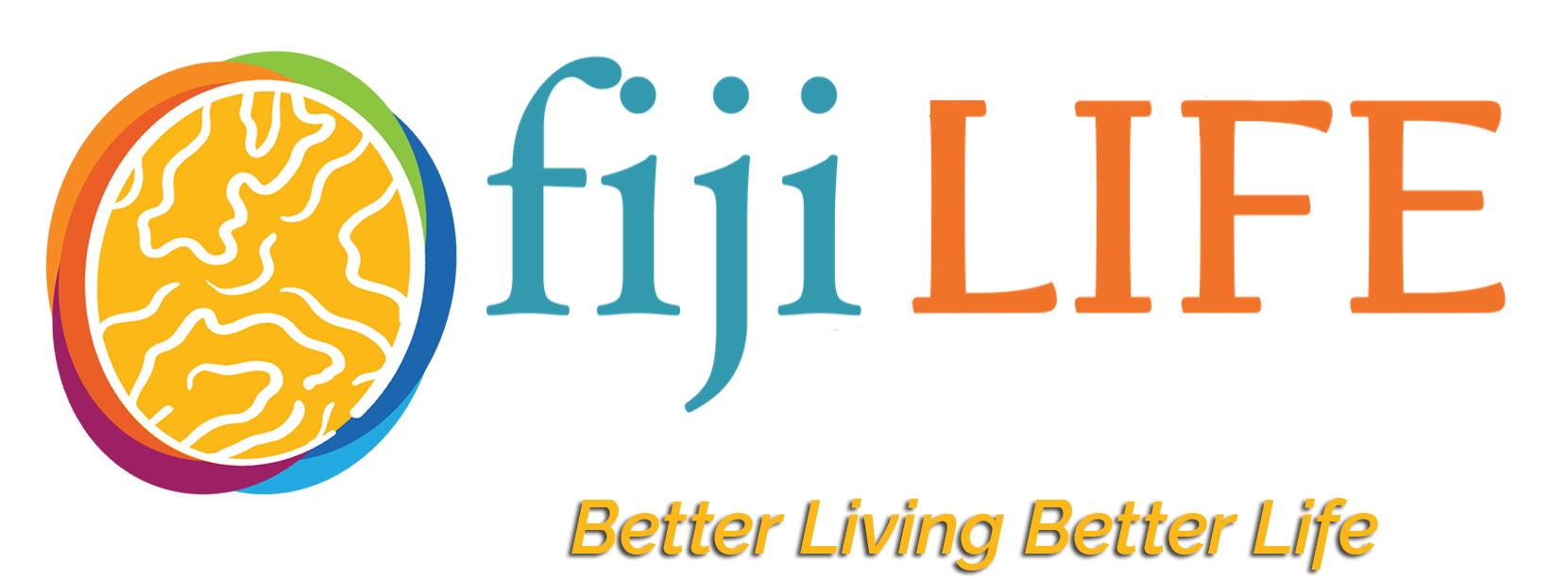
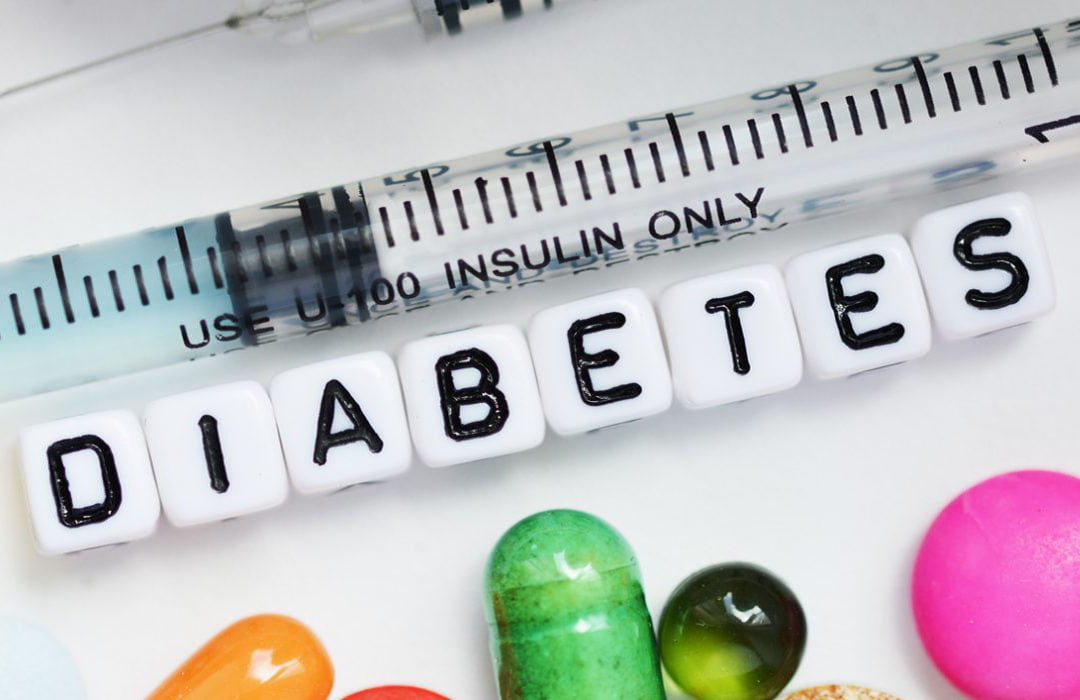
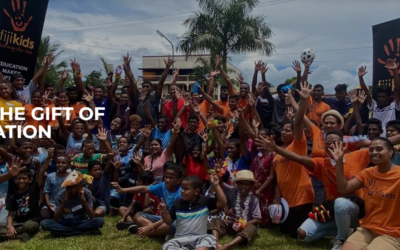

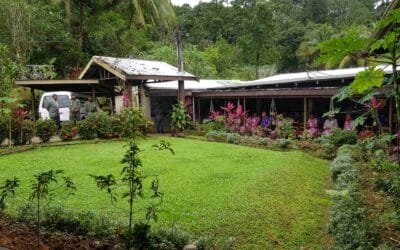
0 Comments